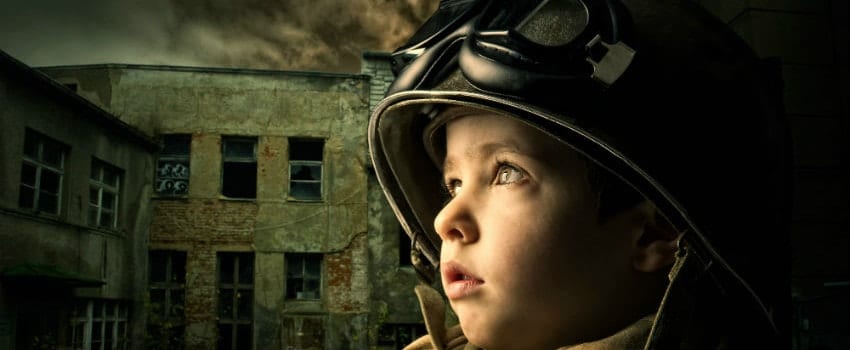
Last month was the one-year anniversary of ISIS being expelled from Mosul. Whilst that is reason to cheer, the children of Mosul continue to live in constant fear for their lives having been scarred by memories of devastation, extreme violence, displacement and continuous bombing according to a recently released report from Save the Children. Hundreds of thousands of children were affected and even teenagers say they feel afraid to walk alone, go to school or be away from parents.
Children experiencing mental health issues
It should come as no surprise that these children are experiencing mental health issues including emotional problems, extreme anxiety and depression. Many have been pushed to the breaking point after experiencing unimaginable atrocities under ISIS. A year after the organisation was expelled, many continue to struggle with their fears. The inability to heal is down to the fact that these girls and boys simply do not feel safe no matter where they are.
Children feel unsafe
Over 80 per cent of teenagers polled said they felt unsafe walking alone and almost half said they felt unsafe when they were away from parents. Almost half said they felt grief all or most of the time and less than one in ten children were able to thing of something happy in their lives. Children are not the only ones to suffer mental health issues, parents also report the similar issues and are not able to provide the support to their kids that is required, producing a devastating cycle of continuous stress.
Children are withdrawing
Instead of turning to their parents, children are choosing to withdraw and not speak about the issues they face which does not help in dealing with emotional distress. Many children are finding it hard to go back to school because so many schools have been destroyed. Children don’t feel safe at school either. Save the Children is urging the international community to put child welfare at the heart of its strategy for post-conflict Iraq. The agency wants donors to increase funding for mental health and psychosocial programmes.
Funding for child mental health programmes in Iraq is necessary
Save the Children says such programmes are a critical part of the emergency responses, recovery and reconstruction efforts that will need to take place in the immediate future. Funding is abysmal and currently stands at just 7 per cent of what has been asked for. The organisation says the Iraqi Government must develop a national policy on the mental health of children and their families who have been scarred by conflict. Urgent Action is necessary so that children have access to essential services and can start to feel safe again to play and go to school.





